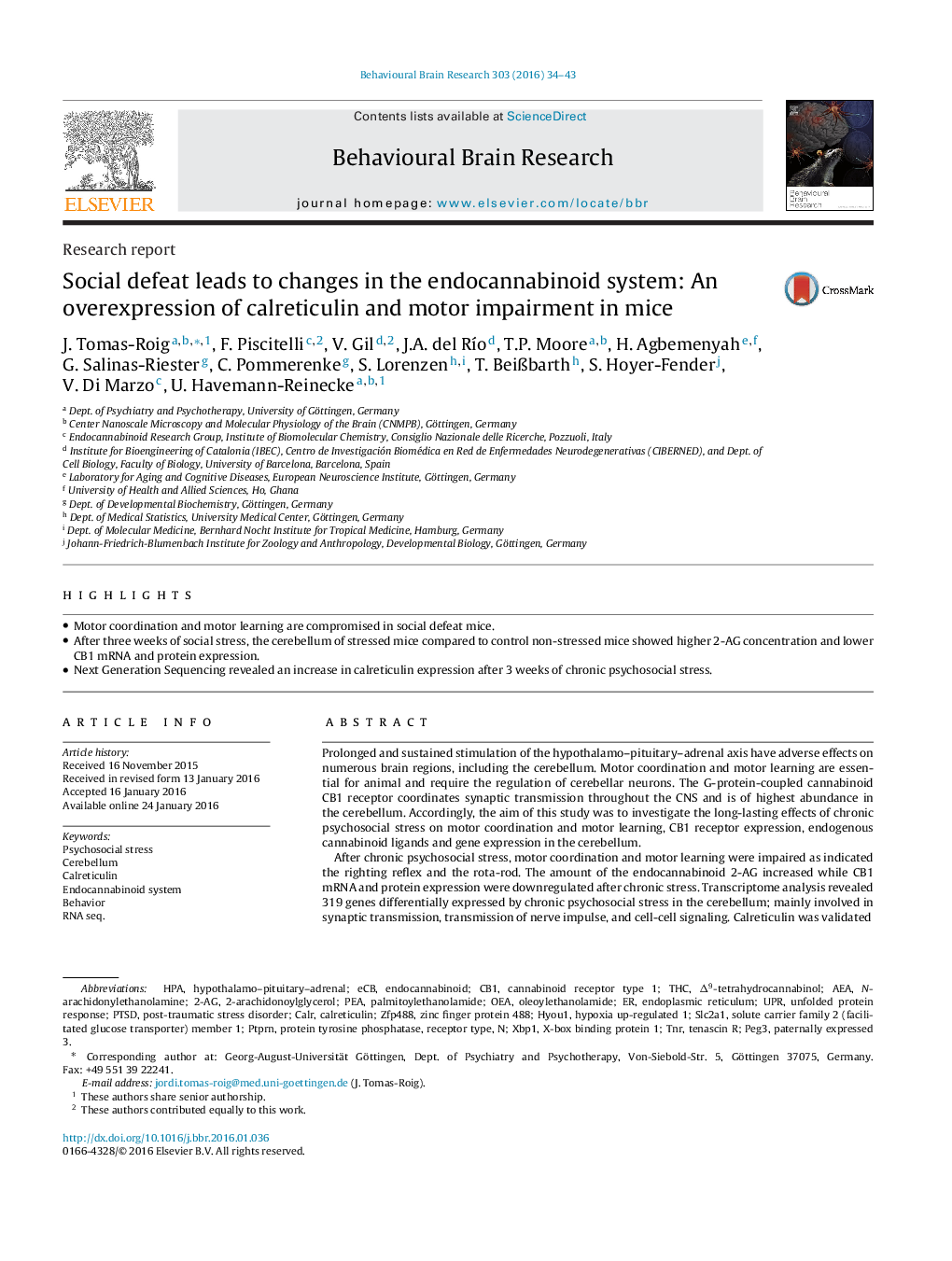| Article ID | Journal | Published Year | Pages | File Type |
|---|---|---|---|---|
| 4312223 | Behavioural Brain Research | 2016 | 10 Pages |
•Motor coordination and motor learning are compromised in social defeat mice.•After three weeks of social stress, the cerebellum of stressed mice compared to control non-stressed mice showed higher 2-AG concentration and lower CB1 mRNA and protein expression.•Next Generation Sequencing revealed an increase in calreticulin expression after 3 weeks of chronic psychosocial stress.
Prolonged and sustained stimulation of the hypothalamo–pituitary–adrenal axis have adverse effects on numerous brain regions, including the cerebellum. Motor coordination and motor learning are essential for animal and require the regulation of cerebellar neurons. The G-protein-coupled cannabinoid CB1 receptor coordinates synaptic transmission throughout the CNS and is of highest abundance in the cerebellum. Accordingly, the aim of this study was to investigate the long-lasting effects of chronic psychosocial stress on motor coordination and motor learning, CB1 receptor expression, endogenous cannabinoid ligands and gene expression in the cerebellum.After chronic psychosocial stress, motor coordination and motor learning were impaired as indicated the righting reflex and the rota-rod. The amount of the endocannabinoid 2-AG increased while CB1 mRNA and protein expression were downregulated after chronic stress. Transcriptome analysis revealed 319 genes differentially expressed by chronic psychosocial stress in the cerebellum; mainly involved in synaptic transmission, transmission of nerve impulse, and cell-cell signaling. Calreticulin was validated as a stress candidate gene.The present study provides evidence that chronic stress activates calreticulin and might be one of the pathological mechanisms underlying the motor coordination and motor learning dysfunctions seen in social defeat mice.
